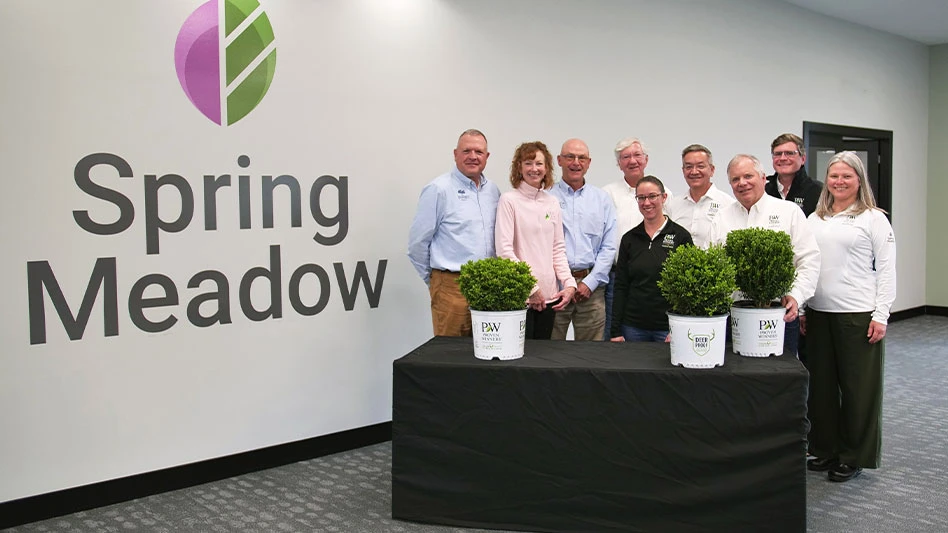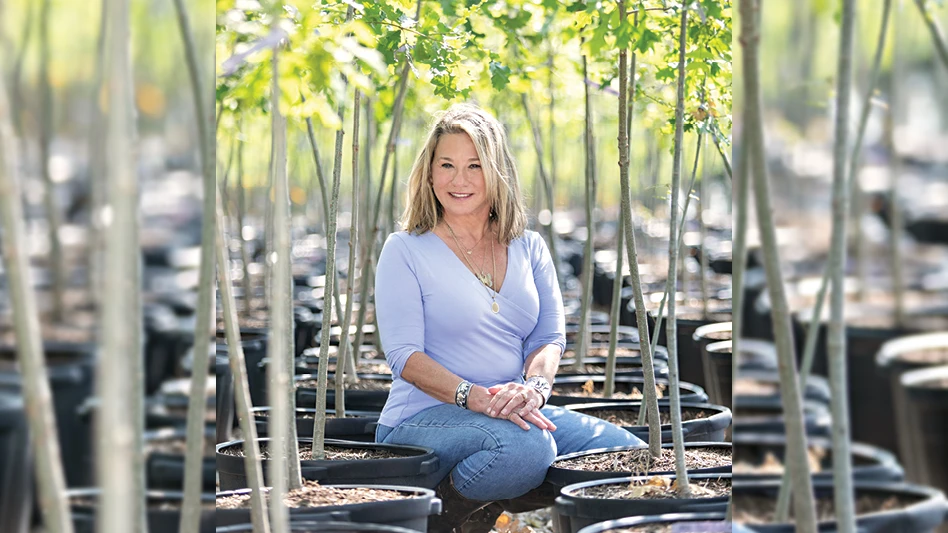EPA, Hydrofarm settle pesticide issue in court
The U.S. Environmental Protection Agency announced April 3 that it had reached a settlement with Hydrofarm, Inc. for selling two unregistered pesticides in violation of federal pesticide law. As part of the settlement, the Petaluma, Calif.-based Hydrofarm, Inc., one of the nation’s largest distributors of agricultural and hydroponic supplies, has agreed to pay $316,000 in fines and has stopped selling both products.
Peter Wardenburg, president of Hydrofarm, said via an email statement that the labeling and registration issues were with products that Hydrofarm distributes, not those it manufactures.
Hydrofarm sold sulfur to control mildew through vaporization in greenhouses without any instructions or precautionary language to minimize risks to individuals from exposure to the product, according to the EPA. The EPA has not yet evaluated the human health risks associated with the use of vaporized sulfur in greenhouses.
The company also sold “Nutralife Plant Products H2O2”— a 29 percent hydrogen peroxide product used to sanitize and disinfect hydroponic equipment and growing areas — without adequate directions for use and safety precautions, the EPA stated. Registered products with similar hydrogen peroxide concentrations require users to wear protective clothing.
For more: www.hydrofarm.com
 Fides cancels mum orders
Fides cancels mum orders
Fides has canceled all chrysanthemum orders for this fall, and will not offer the flowers again until fall 2014, said Mark Schermer, general manager at Fides Oro.
The company, which specializes in breeding and propagation of cut chrysanthemums, pot chrysanthemums, pelargonium, osteospermum, petunia and more sent a note to customers at the end of March announcing the decision to cancel the orders because of agrobacterium in the mum stock, Schermer said.
For more: www.fides-oro.com
Nurseries report resurgent sales
A mild spring, an improved economy, pent-up demand and a strengthening real estate market have combined to yield what California wholesale nurseries and garden centers call their best sales volumes in years.
According to the California Farm Bureau Federation, nursery owners are seeing long-time property owners embarking on garden renovations, including installation of new irrigation systems and drought-tolerant plants, while homeowners who’ve recently purchased foreclosed or distressed properties are sprucing up neglected landscaping.
California’s real estate market recovery is a significant force behind the rebound growers are seeing in sales of ornamental plants and landscaping material.
Scale insects adapting to warmer cities
A new study shows that scale insects are found in large numbers in populous regions because they have adapted to the heat of urban areas. The pests threaten to become a bigger problem as climate change drives temperatures up, researchers warn.
“If climate change causes temperatures to rise in forests, as we expect, we may see scale insects becoming a much bigger problem for ecosystem health,” study researcher Steve Frank, an assistant professor of entomology at North Carolina State University, said in a statement.
Frank and his group’s findings were detailed in a study published online in the journal PLOS ONE.
 Ash dieback DNA breakthrough
Ash dieback DNA breakthrough
U.K. scientists have thrown a lifeline to our ash trees by completing the first sequencing of the Chalara fraxinea genome, the fungus currently attacking ash trees across Europe.
In early April, the scientists unraveled the genetic secrets of the Chalara ash dieback fungus. This will help them understand how the pathogen attacks ash and may help in the fight against the epidemic. The data is freely available on crowd sourcing website OpenAshDieBack (http://oadb.tsl.ac.uk/), which allows experts across the globe to identify specific genes and the roles they play in other organisms.
The scientists are also looking to map the genes of ash trees showing resistance to Chalara. In Denmark, 2 percent of ash trees infected by the fungus have survived. The type, known as Tree 35, could provide the key for the survival of ash in our landscapes.
Wolfgang Engelmann dies
Wolfgang Engelmann died March 30 after a battle with cancer. The owner and CEO of Hermann Engelmann Greenhouses was 55.
He saw the greenhouse his father founded in Apopka, Fla., in 1971 grow into one of the largest producers of houseplants in the world. Today, Hermann Engelmann Greenhouses, Inc. operates more than 3 million square feet of glass greenhouse and employs 350.
The company now offers more than 400 varieties of tropical foliage, branded as Exotic Angel Plants and sold by retailers across the country.
Government revises i-9 form
U.S. Citizenship and Immigration Services (USCIS) published a revised Employment Eligibility Verification Form I-9. Employers are required to complete a Form I-9 for employees hired in the U.S.
Improvements include new fields, reformatting to reduce errors, and clearer instructions to both employees and employers.
Employers may continue to use previously accepted revisions until May 7, after which point employers must only use Form I-9 (Rev. 03/08/13)N.
Employers should not complete a new Form I-9 for current employees if a properly completed form is already on file. The revised forms are available in English and Spanish at www.uscis.gov.

Explore the May 2013 Issue
Check out more from this issue and find your next story to read.
Latest from Nursery Management
- The HC Companies, Classic Home & Garden merge as Growscape
- Eason Horticultural Resources will now officially be known as EHR
- BioWorks receives EPA approval for new biological insecticide for thrips, aphids, whiteflies
- Ellen Mackenbach-Lakeman appointed new CEO of Dümmen Orange
- Southern Garden Tour sets 2025 dates for trial garden open houses
- New book explores plants that thrive in Rocky Mountains
- American Floral Endowment establishes Herman Meinders Memorial Tribute
- These companies are utilizing plastic alternatives to reduce horticultural waste





